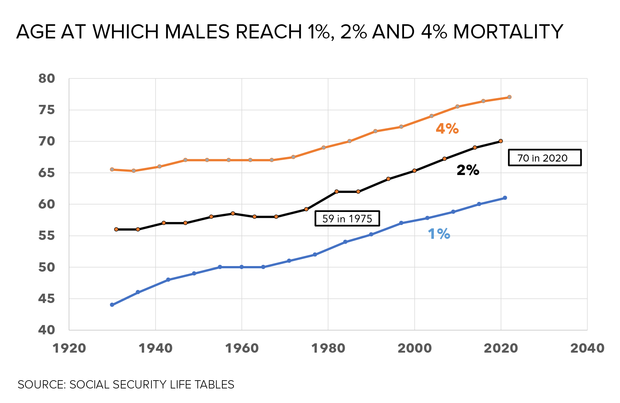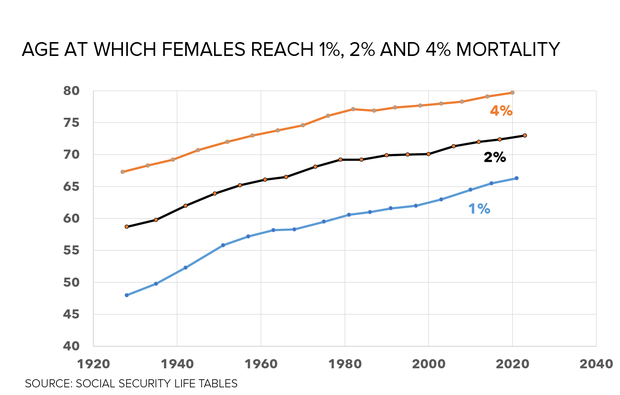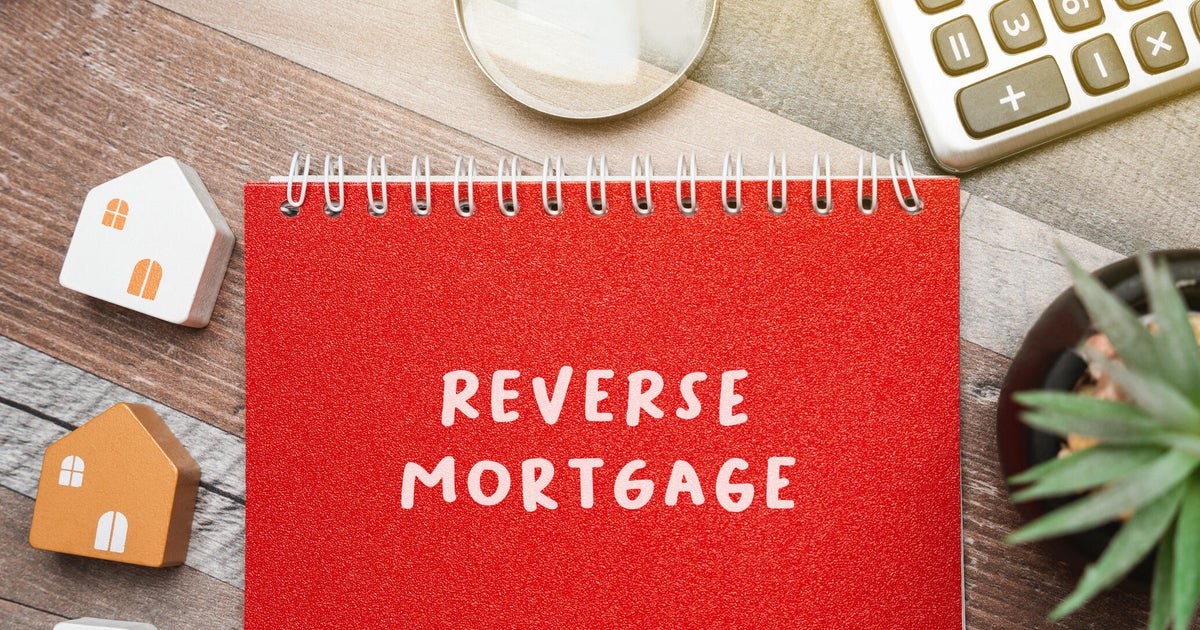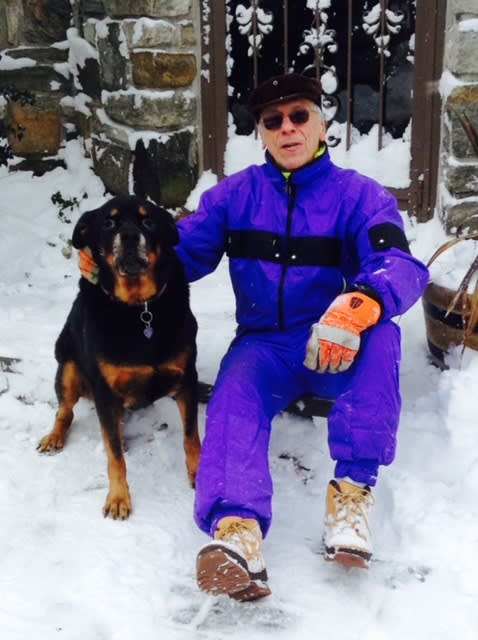What age is considered "old" nowadays?
"Old" people are getting older. While this might seem obvious, a statistical perspective provides interesting insights into living and working in today's longevity revolution.
Research from John Shoven, a prominent economics professor at Stanford University, suggests that if your chance of dying within the next year is 1 percent or less, you might be considered "middle aged." The chart below shows that the threshold for men transitioning beyond middle age increased from about age 44 in the 1920s to about 60 today.
If your chance of dying within the next year is 2 percent or more, Shoven suggests you might be considered "old." The above chart shows that the threshold age for being considered old for men increased from about 55 in the 1920s to 70 today.
And finally, if your chance of dying within the next year is 4 percent or higher, you might be considered "very old" or "elderly." The above chart shows that this threshold for men increased from about 65 in the 1920s to 76 today.
Note that by these definitions, "old" in the 1920s -- 55 -- is now considered "middle aged" today, and "very old" in the 1920s -- 65 -- is now considered merely "old" today.
Shoven suggests that reduced mortality rates correlate roughly with improved health and vitality at all ages, and can be used as a proxy measure for aging.
Here's the same chart for women:
By these measures, women today transition out of middle age around 65, a number that has increased from the late 40s in the 1920s. "Old" for women today is about 73, which increased from the late 50s in the 1920s. And "very old" today is about 80, an increase from about 67 in the 1920s.
But these are just numbers. How do today's boomers look and feel? It's insightful to compare photos of the boomers' parents and grandparents when they were in their 60s and 70s -- they look a lot older than today's boomers of the same age.
These are the fortunate consequences of the longevity revolution we've been experiencing over the past several decades. It results from virtually universal access to clean water, sanitation, waste removal, electricity, refrigerators and vaccinations, and continued improvement in health care. Many demographers predict longevity will keep lengthening in the decades to come.
Howver, while we should be dancing in celebration of our longer and healthier lives, instead we're wringing our hands over the significant challenges of an aging society.
The statistics cited above point to the compelling need for people to continue working in some manner during their later years. But as a society, we set cultural expectations for appropriate retirement ages decades ago, when many people in their 60s and 70s were unable to work and were considered "old" or "very old."
We'll need to rethink those expectations. It's simply too expensive to continue adding more and more years to the retirement phase of our lives. That requires savings levels that we just can't afford, and it's putting serious strains on Social Security and pension systems.
According to Shoven, "It's very expensive to fund 30-year retirements over a 40-year career," a fact that points to the economic necessity for many people to work longer than prior generations did.
It also doesn't make sense to stop working altogether now that we're no longer considered "old" in our 60s or 70s and are still physically capable of earning a paycheck and contributing to society. And people can also gain social and health benefits by working in their later years.
Society faces significant challenges adjusting to the greater number of people living longer. However, wouldn't you rather face these challenges than go back to the "good old days" when "old" people were a lot younger than today?





